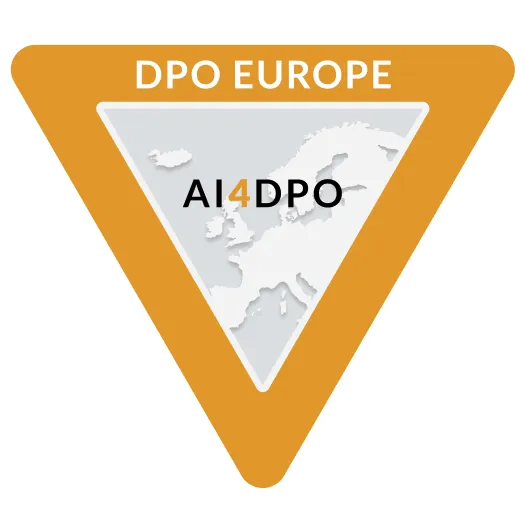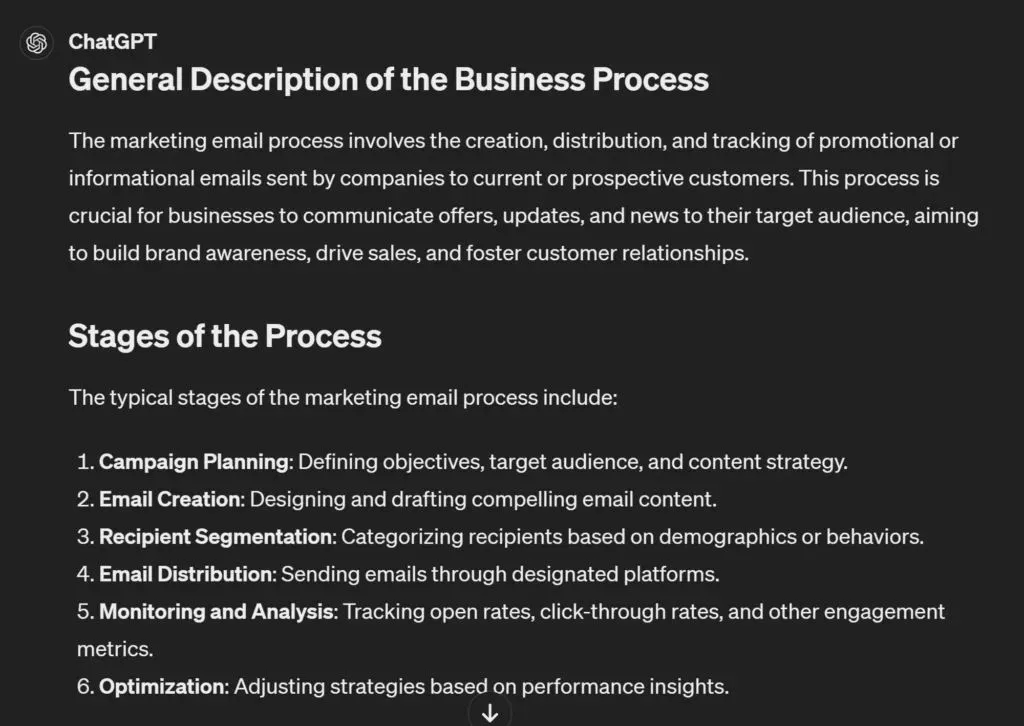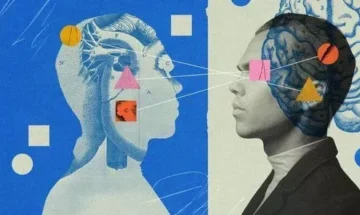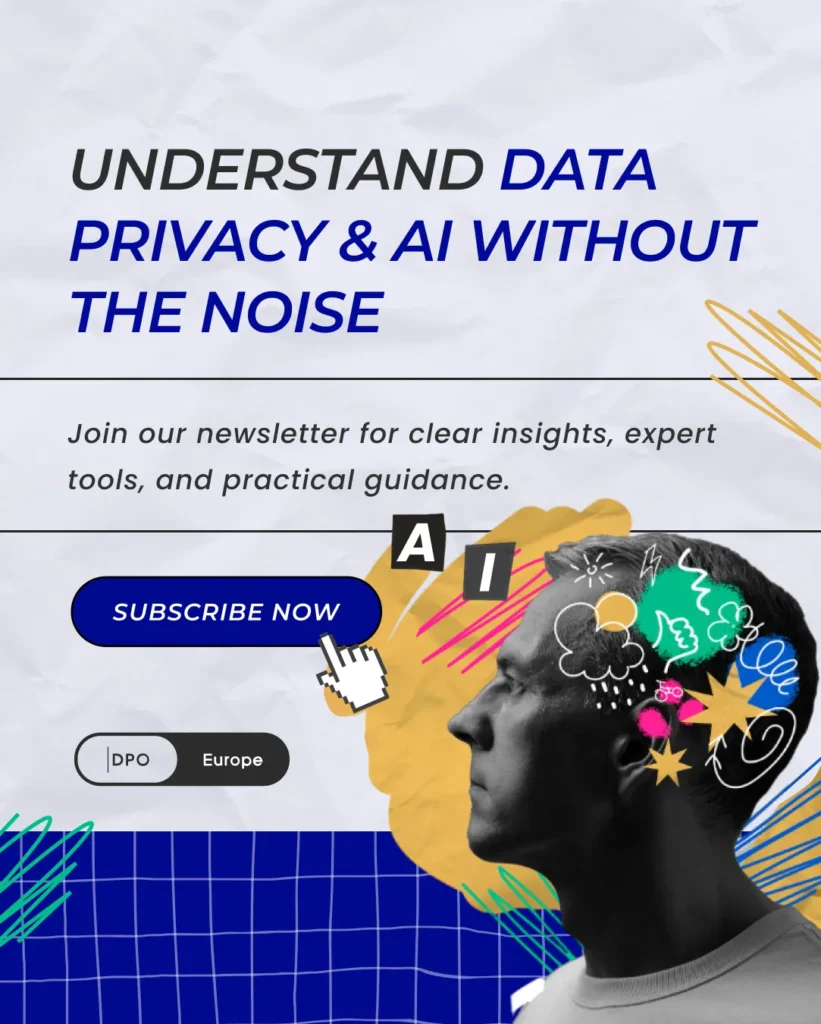AI Tools for Data Protection Officers (AI4DPO)
A practical course on automating the work of data privacy, legal, and InfoSec professionals using AI.
We teach you how to properly use generative AI, build your own automations with various tools, and provide ready-made templates for RoPA, LIA, and other procedures.
- October 20 → November 12
- 2 packages
- 8 live online sessions, 2 times a week
- Electronic certificate via Accredible
- Practical exercises, group work on the final project

AI can't replace DPO, legal and other experts
But it can make their work less routine and free up space for strategic decisions.
Here’s how your work can change after the course.
Before the course
After the course
Before the course
After the course
Before the course
Compliance Officers draft DPIAs in simple word
documents
After the course
Generate auto-filled DPIA drafts using OS4DPO based on your existing data.
Before the course
After the course
Use MS Copilot in Excel to automate risk scoring and fast dashboard creation.
Before the course
Privacy Consultants & External DPOs
provide audit results in the client’s local language using services of a translator.
After the course
Translate findings instantly using Lingvanex with privacy-specific terminology support.
Before the course
After the course
Build response workflows in N8N to handle data breach alerts, log collection, and escalation.

We know what we’re talking about
Our team automates diverse processes with AI: from analyzing feedback to improve services to scraping news about data privacy and related fields to stay current.
The founder of Data Privacy Office Europe and trainer of the AI Tools for DPO course Siarhei Varankevich is an AI enthusiast dedicated to enhancing the company’s internal workflows and equipping our consultants with valuable AI tools for client projects.
Filling RoPA with Chat GPT
This article shows how AI can quickly and efficiently create a Record of Processing Activities (RoPA) that meets GDPR requirements.

Automized LIA generator
The AI tool that automatically generates LIA reports in Notion, using survey responses and the ICO template.

What you’ll get after the course?
Routine Work Reduction
Automation Potential
Routine Work Reduction
Proven Performance
Choose your package
Confident User
This package is created for those who what to learn basic knowledge on AI and get pre-build templates.
- AI4DPO Training Course
- Prompt Constructor and Library in Notion
- Notion Templates for DPO (LIA Generator, RoPA, Data Subject Requests Management System, and etc.)
- AI4DPO Community membership
Advanced User
This package is ideal for specialists eager to build custom no-code automations and get exclusive insights on AI implementation from Siarhei and our expert team.
- All in Confident User
- Additional course module on N8N
- n8n templates for DPO 1-year
- n8n instance setup with unlimited workflows
- 1-year of Individual consultations
Course details
- Live online sessions with trainers
- 4 weeks
- 2 times a week on discussed time
- Group work on the final project
- Miro, Notion, MS Teams
- Electronic certificate via Accredible
Program
Module 1: AI Foundations, Mindset, and Data Security
What is it about?
Understanding the fundamental concepts of Large Language Models (LLMs), Tokenization, and Vectorization/Embeddings. Students will learn to critically assess security and privacy risks and identify potential contextual mismatches between the LLM’s general training data and specific DPO requirements.
Tools We Will Master
- TensorFlow Embedding Projector — a visualization tool that allowes users to investigate how AI perceives the relationships and meanings between different words based on its large training dataset.
- Foundational LLMs inside ChatGPT, Claude, and Perplexity.
Acquired Competencies
- Ability to critically evaluate AI outputs for accuracy and recognize their limitations.
- Understanding how AI operates within “information bubbles” and why providing specific context is essential to overcome the AI’s default generalized knowledge.
- Identifying common contextual mismatches in privacy work (such as jurisdictional differences, timeline inconsistencies, role confusion, and data scope errors) and understand how these misalignments emerge when AI applies generalized knowledge to specialized data protection cases.
Module 2: Prompt&Context Engineering Mastery
What is it about?
Crafting precise instructions and providing relevant background information that guide AI to produce accurate, relevant, and well-structured outputs. It teaches you to communicate with AI much like writing code, where each word choice and context element significantly influences the quality of results.
Tools We Will Master
- Notion Prompt Constructor for structuring and storing prompts.
- Anthropic Console for improving and generating sophisticated prompt structures.
- ChatGPT and Perplexity for testing and output generation.
Acquired Competencies
- Developing advanced delegation techniques for working with AI.
- Creating deterministic prompts that consistently deliver reliable results.
- Refining interpersonal communication by adjusting tone through AI assistance.
- Ensuring legal accuracy by requiring source citations.
- Determining when to use RAG versus general search. Transform general LLMs into specialized research assistants.
Module 3: Grounded Research (RAG) and Hallucination Control
What is it about?
Mastering the Retrieval-Augmented Generation (RAG) method, which enables AI to use a curated, trusted knowledge base (uploaded documents) instead of relying on general training data. Learning practical techniques to mitigate hallucinations, including requesting evidence and adjusting AI parameters.
Tools We Will Master
- Perplexity Spaces.
- ChatGPT Custom GPTs/Projects.
- Google NotebookLM for strict, grounded RAG research.
- Dedicated document repositories for sourcing high-quality knowledge.
Acquired Competencies
- Designing effective research strategies grounded in trusted sources. Learn to rely on specialized legal references rather than general AI knowledge for critical analysis.
- Curating sources with authority tiers and freshness windows; prioritize primary legal texts and official guidance.
- Enforcing context minimization by injecting only the most relevant passages, requiring citations and quote-bounded evidence.
Module 4: Automation of DPO Workflows (No-Code Systems)
What is it about?
Transitioning from single prompts to designing reusable prompt templates using variables and automating repetitive DPO tasks (RoPA, DSAR, policy drafting) in no-code environments.
Tools We Will Master
- Notion Databases and AI Properties for RoPA automation and document drafting.
- Custom GPTs/Perplexity Spaces saving complex prompts as reusable “assistants”.
- ChatGPT Canvas for complex document editing and iterative drafting.
Acquired Competencies
- Mastering the skills of an AI Workflow Architect by learning to structure digital tasks efficiently, transform static variables into interactive AI features, and design cohesive multi-step document generation processes.
(Advanced) Module 5: Advanced Architectures, Agents, and Workflow Integration
What is it about?
Exploring complex AI architectures, including Multi-Agent Systems (where agents verify each other’s work), and deep RAG architectures. Addressing organizational AI strategy and high-level confidentiality risks related to provider reuse of data.
Tools We Will Master
- n8n (conceptual overview and simple chatbot build).
- API tools for website content analysis or crawling
- Useful MCP (model context protocol) tools for integrating AI into existing workflows while maintaining data security standards.
Acquired Competencies
- Creating verification systems with multiple AI agents that monitor each other’s work to increase reliability.
- Mastering quick data entry using voice commands, learn to identify AI-generated text, and evaluate important security factors when implementing AI (including choosing between cloud and on-premises solutions).
- Effectively working with client documents using “Perfect Memory” technology that transforms information into a unified project.
Important: Basic software skills are required to participate in this course as we will explore advanced technologies during the training.
Learn with experts

Siarhei Varankevich
CIPP/E, CIPM, CIPT, MBA, FIP

Elena Aliseychik
GDPR DPP, GDPR DPT, GDPR DPM, CIPP/E
That’s what our clients say about our courses
Frequently Asked Questions
What is AI-based compliance tool for data protection?
AI tools for data privacy compliance are software solutions that leverage AI technologies to help organizations comply with privacy regulations like General Data Protection Regulation (GDPR). They facilitate the management of sensitive data and automate compliance tasks. AI is designed to enhance efficiency, and compliance work, which often involves routine and repetitive tasks, is highly susceptible to automation.
Will compliance experts be replaced by AI?
Use of AI tools will not replace the human role in compliance, legal judgment, or professional work, but it will fundamentally transform it. While AI is capable of automating and amplifying human abilities to an unprecedented degree (often 2x, 5x, or 10x better), the core responsibility and application of judgment remain with the human professional.
How do AI systems ensure compliance with privacy regulations?
AI offers ensuring compliance primarily by controlling data input and output to mitigate privacy risks. This is achieved through security features like commercial API licenses, which prohibit AI providers (such as OpenAI and Microsoft) from training models on user data, preventing the use of confidential information for service improvement. To reduce reliance on external providers, companies can choose on-premise deployment of open-source models, ensuring personal data remains securely within the company’s control, thereby significantly reducing compliance burdens like Transfer Impact Assessments (TIAs). Furthermore, AI tools reduce inaccuracy risks through Retrieval-Augmented Generation (RAG), a technique that forces the model to ground its analysis in verified, trusted documents (like EDPB guidance) provided by the privacy professional, rather than relying on general, error-prone internet training data.
What is the role of EU AI Act and AI Governance in data privacy?
AI governance is crucial for ensuring that the use of these powerful tools aligns with professional and ethical duties, especially concerning client data. It mandates that law firms establish clear policies and guidelines on acceptable AI use to prevent the disclosure of proprietary and confidential information, which is a significant organizational risk. Furthermore, governance requires lawyers to uphold their duty of competence by developing a reasonable understanding of the capabilities and limitations of specific AI tools, including potential risks like hallucinations. Oversight is necessary to manage risks related to data security breaches, bias, and the use of cloud services, which can expose data to third parties. Finally, managerial lawyers must provide comprehensive training for staff on ethical practices and ensure that all personnel adhere to policies governing approved tools and security protocols.
What are some compliance solutions offered by AI tools?
AI tools offer privacy management solutions by automating time-consuming and repetitive tasks, thus significantly increasing efficiency. Specifically, AI can draft and review complex documents, such as legal contracts, privacy clauses, and Data Processing Agreements (DPAs), flagging potential risks or anomalies regarding legal adherence. AI can also generate the foundation for internal privacy documentation, like purpose statements for Records of Processing Activities (RoPAs) or drafts of Legitimate Interests Assessments (LIAs), acting as a solid first draft. Advanced tools leverage custom knowledge bases, allowing them to perform controlled legal research grounded only in specific authoritative sources, such as EDPB guidelines, provided by the user. By rapidly transforming or summarizing lengthy texts, AI models enhance the comprehensibility of complex legal information for professionals.
What are the benefits of using AI model for personal data protection?
The primary benefit of using AI for data privacy compliance is the enhancement of professional efficiency and speed in tasks like document review and legal analysis. AI can amplify a professional’s potential, allowing compliance teams to focus their expertise on higher-value strategy and creative problem-solving rather than mundane, routine tasks. This automation generally leads to improved accuracy in legal analysis and the early identification of risks within contracts or organizational processes. By streamlining documentation like Privacy Notices and RoPAs, AI helps under-resourced teams meet legal obligations more consistently and thoroughly. Ultimately, leveraging these tools enables legal professionals to serve clients and adapt to the ever-increasing volume of data that must be processed.







